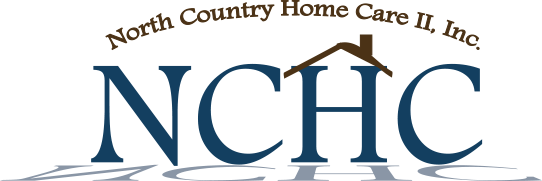Access to Quality Care is Available to You!
PERSONAL CARE SERVICES
Minnesota’s Personal Care Assistance program is designed to support people of all ages with disabilities to live independently in the community. Personal Care Assistants (PCAs) provide services to people who need help with activities of daily living, instrumental activities of daily living and health-related functions. PCAs also provide hands on assistance, supervision, redirection and intervention for behavior including observation and monitoring.
Minnesota’s Personal Care Assistance program is designed to support people of all ages with disabilities to live independently in the community. Personal Care Assistants (PCAs) provide services to people who need help with activities of daily living, instrumental activities of daily living and health-related functions. PCAs also provide hands on assistance, supervision, redirection and intervention for behavior including observation and monitoring.
Activities of daily living (ADLs)
A PCA may assist the person with the following ADLs:
A PCA may assist the person with the following ADLs:
· Dressing – Application of clothing and special appliances or wraps.
· Grooming – Basic hair care, oral cares, shaving, basic nail care, applying cosmetics and deodorant, care of eyeglasses and hearing aids.
· Bathing – Basic personal hygiene and skin care.
· Eating – Completing the process of eating including application of orthotics required for eating, hand washing and transfers.
· Transfers – Assistance to transfer the person from one seating or reclining area to another.
· Mobility – Assistance with ambulation.
· Positioning – Assistance with positioning or turning a person for necessary care and comfort.
· Toileting – Helping person with bowel or bladder elimination and care. This includes transfers, mobility, positioning, feminine hygiene, use of toileting equipment or supplies, cleansing, inspection of the skin and adjusting clothing.
Instrumental activities of daily living (IADLs)
A PCA may assist an adult recipient with the following:
A PCA may assist an adult recipient with the following:
· A clean, safe and healthy environment
· Socialization and companionship
· Accompany to medical appointments
· Accompany to participate in the community
· Assist with paying bills
· Communicate by telephone and other media
· Complete household tasks integral to the PCA services
· Plan and prepare meals
· Shop for food, clothing and other essential items
Health-related procedures and tasks
Under state law, a licensed health care professional may delegate health-related procedures and tasks to a personal care assistant. Examples of health-related procedures and tasks include:
Under state law, a licensed health care professional may delegate health-related procedures and tasks to a personal care assistant. Examples of health-related procedures and tasks include:
· Assistance with self-administered medications
· Interventions for seizure disorders, including monitoring and observation
· Range of motion to maintain a person’s strength and muscle functioning
Observation and redirection of behaviors
A PCA service may include observation of a person who:
A PCA service may include observation of a person who:
· Has episodes of behaviors
· Needs redirection to remain safe in his/her environment
The PCA program provides support to:
· People with disabilities of all ages
· Elderly (over 65 years)
· People with chronic health conditions
ELIGIBILITY FOR PERSONAL CARE
· Must be eligible for or receiving Medical Assistance or Minnesota Care expanded benefits (for pregnant women or children under age 21) or be eligible for the Alternative Care program for qualifying seniors.
· Individual clients must be able to make decisions about their care or have a person or responsible party who can make decisions about their care.
PERSONAL CARE PROVIDER ORGANIZATION
NCHC is a Minnesota Department of Human Services authorized Personal Care Provider Organization. NCHC is not a Licensed Home Health Agency, which means they do not provide skilled care such as Home Health Aides, Private Duty Nursing Service or Physical or Occupational Therapists. However, NCHC will work together in cooperation with Home Health Agencies, coordinating services to provide the best and most cost efficient care.
WAIVERED SERVICES
NCHC is also a Home and Community Based Waivered Services Provider, providing Homemaking services for individuals on CADI, TBI DD and EW Waivers as well as Alternative Care. 245D Services provided: Homemaking, IHS with or without training, ICLS, Night Supervision and Respite.
NCHC is also a Home and Community Based Waivered Services Provider, providing Homemaking services for individuals on CADI, TBI DD and EW Waivers as well as Alternative Care. 245D Services provided: Homemaking, IHS with or without training, ICLS, Night Supervision and Respite.
Our Homemaking Services include:
General household activities provided by a trained homemaker, when a person is unable to manage the home or when the person regularly responsible for these activities is temporarily absent or unable to manage the home.
General household activities provided by a trained homemaker, when a person is unable to manage the home or when the person regularly responsible for these activities is temporarily absent or unable to manage the home.
Covered Services
· Meal preparation
· Shopping and errands
· Routine household care
· Assistance with activities of daily living
· Transportation arrangement
· Companionship
· Emotional support
· Social stimulation
· Monitor the safety and well being of the client
